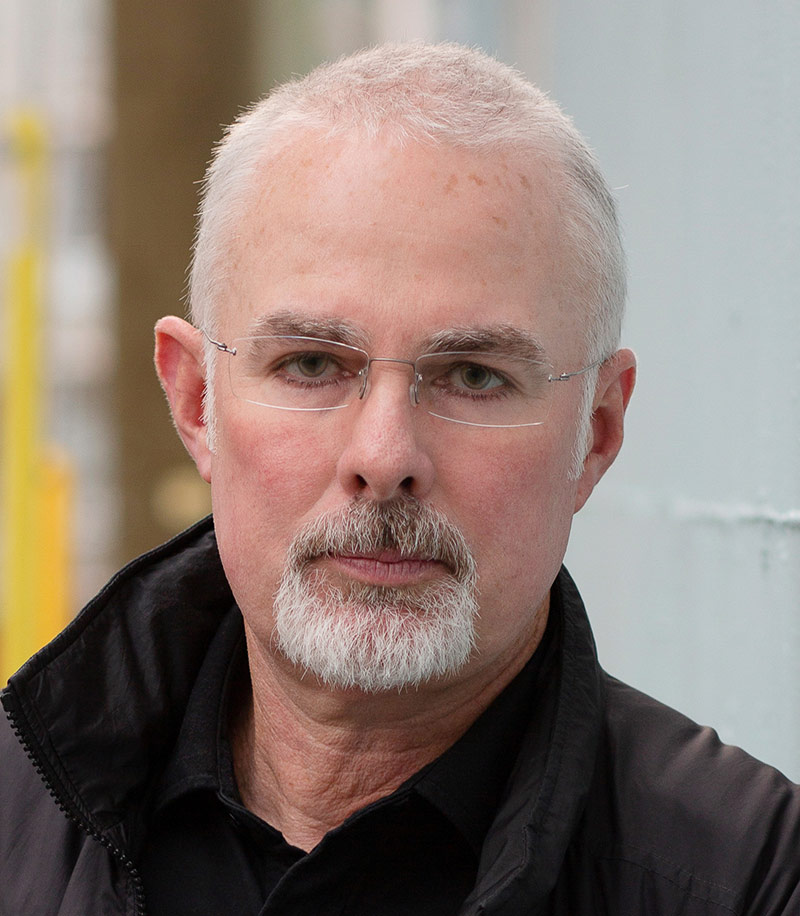We are living in tumultuous times, each of us without individual power to change the big, messy picture. For me, the reaction has been to desperately keep staring. Not just taking in news, but scrolling endlessly, flicking from a big screen to a smaller one, toggling across multiple social media apps and scrolling some more.
We shouldn’t look away, I keep telling myself.
But at what point do our brains become numb from the deluge of images and information? As the possibility of a new world war looms, during the third year of a deadly global pandemic no less, how can we find healthier, more helpful ways to cope?
That’s a question I decided to put to Dr. Steven Taylor, a professor in the department of psychiatry at the University of British Columbia. Months before COVID-19 emerged, he published a book about the mental toll of pandemics called The Psychology of Pandemics: Preparing for the Next Global Outbreak of Infectious Disease.
Pandemics, like wars and other upheavals, can cause people to become overwhelmed by something Taylor calls the “burden of accumulated adversity,” which increases the risk of developing depression, chronic anxiety or even post-traumatic stress disorder.
“Put simply, the more bad stuff that happens to you, it just adds up over time till you get a situation where you can’t bear anymore,” he said.
Taylor can relate to that. Early in the pandemic, he was working too much — spending most of his day immersed in COVID-19 news. “I was not exercising, I was stressed out, gaining weight,” he said.
Then he realized he needed to start taking some of his own advice, such as imposing a structure on his work day, dedicating additional time for family and friends, exercising more and carving out time for hobbies or other non-work activities.
To be sure, not turning away from suffering, but deciding instead to bear witness, can be a powerful mechanism for transformation and healing. However, in an increasingly complex and connected world, Taylor notes that being tuned in all the time can also make us vulnerable to destabilizing misinformation.
It’s healthier and more sustainable to focus on the things one can control, as well as listening to and learning from others. And that approach can actually help people grow and become more resilient moving forward.
Here is my conversation with Taylor, edited for length and clarity.
The Tyee: You’ve talked about how the impacts of conflict are complex, especially now with the added layer of misinformation. For people trying to keep up with it all but feeling helpless, what’s the effect?
Dr. Steven Taylor: The obvious thing is it’s increasing your dose of exposure to horrifying, traumatizing images, or news stories that turn out to be fake. So even if you realized later on, “Oh, that was a fake image or fake story,” at the time, if you think it’s true, it’s going to have its psychological impact on you, it’s going to be traumatizing.
[In the early hours of the Russian invasion of Ukraine], there was, I believe, an instance of a fake video about someone’s leg being blown off. It turned out to be a prosthetic leg, so no one was actually harmed. But just watching that, and thinking to yourself that it’s real at the time, that can be traumatizing, even if you learn later on it was not true.
When people get exposed to all this fake news, it can be highly distressing for them. It can distort their perception of how prevalent danger is in their community. That’s another reason for sticking with reputable news services if you’re getting news on some evolving situation, and limiting your dose of exposure to information. That’s easier said than done, because in a situation like an impending war, or an impending pandemic, people are anxious and they want to get information to find ways of protecting themselves or others, or making threats more predictable and controllable. For humans, and animals as well, we find stresses easier to endure if they’re predictable and controllable.
But if you take away that prediction and control, people start to speculate. Rumours circulate, including wild, unsubstantiated rumours in which people try and make sense of the situation. And that speculation just fuels anxiety.
Could you talk more about how rumours arise during these moments of unpredictability?
When we have a great uncertainty about important areas of life, in communities or elsewhere, rumours do circulate. Rumours are improvised and are ways for people to try and make sense of a given situation. As rumours pass with retelling, they tend to change over time. They tend to become shorter, more concise and sharper. They tend to emphasize particular details and leave out others. That can change the nature of the story and can potentially make it more harmful or distorting.

Take a rumour that say, a particular drug is useful in treating COVID, let’s say ivermectin. A rumour starts that, “Hey, maybe it works,” and someone’s speculating. With the retelling, suddenly ivermectin becomes the gold standard game changer — even though it is anything but. This is how rumours morph or evolve over time.
And of course, with social media and a rise of conspiracy theorists and conspiratorial thinking, we’ve got those things added into the mix.
There’s an impulse to absorb as much information as possible as a way of being responsible to the world. But I imagine this isn’t the most helpful or healthy response.
It’s important to ask oneself, “OK, why am I seeking out this information? Am I trying to honour the dead or respect the situation? Am I trying to be well-informed? Or is it my own difficulty tolerating uncertainties in my world?” People differ in their tolerance for uncertainty and people who have a really difficult time tolerating uncertainties in their life tend to worry a great deal. They’re at risk for developing something like generalized anxiety disorder.
Collecting information is like a tool. You can use it for some good ends, but it can be misused as well. And if you’re collecting all kinds of information indiscriminately, including a whole bunch of disturbing, fabricated images, videos and so forth, that’s going to distort your picture of reality and be very distressing for you.
The term “infodemic” was coined by Washington Post writer David Rothkopf in regards to SARS. Can you talk a little bit more about that?
The title of the article is “When the Buzz Bites Back.” He was talking about the rise of rumours and fake news around SARS back in 2003, in comparatively primitive internet and social media. There were all the fake stories that we’re seeing today. They weren’t as dramatic, but there were enough of them to be of concern.
Rothkopf was writing at the time about how important [discernment] is and he was saying things that are obvious now: that fake news travels very fast and fake stories actually seem to travel faster or get disseminated more broadly than true statements.
In your book, you talked about how the way we are dealing with this deluge of information right now is an old coping strategy for entirely new situations.
Right. We need to upgrade our coping. Pre-infodemic coping might not be helpful. And as you say, the excessive consumption of information — or the opposite, people just tuning it all out, ignoring all disturbing information and trying to live in a little bubble — that’s not helpful in the long term. So either extremes can be a concern.
So what is the best way to cope?
It very much depends on your situation. But there are some general things and some of these things sound very simple, but they can be effective. If you’re in a stressful, uncertain, powerless situation, the business world has an acronym for that: VUCA, which stands for volatility, uncertainty, complexity and ambiguity.
We’ve talked about limiting your dose of news, about making sure it is from reliable sources, and about controlling what you can control in your life. Do whatever sensible things you can do to mitigate the perceived threat and control it. That might even boil down to something as mundane as working on ways of managing your stress level. Diet, sleep, physical exercise, limiting substances… those sorts of things can be helpful as well.
How do you talk about this with your loved ones, children or other people who are feeling overwhelmed, but maybe aren’t as plugged in? How do you help within your own community?
First off, you need to be able to read the situation and read the person that you’re talking with. If you’re talking with children, what is this child’s developmental age? If it’s a nine-year-old, that’s very different from a five-year-old or a 15-year-old. That can influence how they perceive these events.
And we need to make an effort to understand what the other person is experiencing. We shouldn’t make the assumption that we know what they’re going through. You shouldn’t assume just because you’re stressed out about some conflict going on, they’re feeling the same way or have the same worries or concerns. So we need to take an open mind. You’re not going to know unless you ask, unless you listen to what other people have to say.
Listening is really important. It circumvents any erroneous preconceptions you might have, and of course, listening to people is something people don’t get enough of anyway these days. How many times have we had the experience where we’ve sat down and had someone really listen to us and our concerns?
Once you understand the situation, and you’ve empathized, then you’re in a better position to offer them some support. But that depends on what they need or what they want. Sometimes people just want acknowledgement of what they’ve gone through and how they’re feeling. That might be enough, or some other kinds of practical assistance, but you’re not going to know unless you ask.
So an important way of coping involves staying more local, moving more slowly and listening to those around you.
Yes, there’s more to it, but people have a natural urge to talk about important things in their lives, and particularly things that are stressing them out. That’s what people do and that’s how we get social support from other people. That’s enormously important. But for every speaker there needs to be a listener. We as individuals and communities need to listen to what other people have to say, to understand what they’re going through, to help them feel that they’ve been listened to and understood.
I think some might respond, “Fine but we are living in unprecedented times, very strange, weird, messed up times. Are you just going to therapize your way out of it and try to ignore what’s happening?” What do you think about that?
Some people will take that route and some people will discover that they naturally become more resilient over time. This is a phenomenon called post-traumatic growth. We’ve done some research on this during COVID. I think it’s important to recognize that human beings are remarkably resilient, that we’ve survived countless wars, atrocities and pandemics, and humans just keep bouncing back. We are very robust in general.
That’s not to say there aren’t segments of society, even substantial segments, where people have developed lingering, ongoing psychological problems. But that said, most people find ways of adapting to stressors or stressful circumstances.
I think what can be helpful for people is to ask themselves to take stock: “OK, I’ve been through two years of a pandemic. It’s been stressful. It’s upended my life in all kinds of ways. What useful things have I learned about either coping with stress or about myself during this pandemic, things that I can carry forth to deal with other sorts of stressors?”
In our research, we found about three-quarters of the several thousand American and Canadian adults we assessed said yes, they had some silver linings from COVID. They were more resilient to stress and had enhanced connections with friends, family and community. I would encourage people to look for avenues in which they have grown and to think about ways in which they could be perpetuating that. ![]()
















Tyee Commenting Guidelines
Comments that violate guidelines risk being deleted, and violations may result in a temporary or permanent user ban. Maintain the spirit of good conversation to stay in the discussion.
*Please note The Tyee is not a forum for spreading misinformation about COVID-19, denying its existence or minimizing its risk to public health.
Do:
Do not: